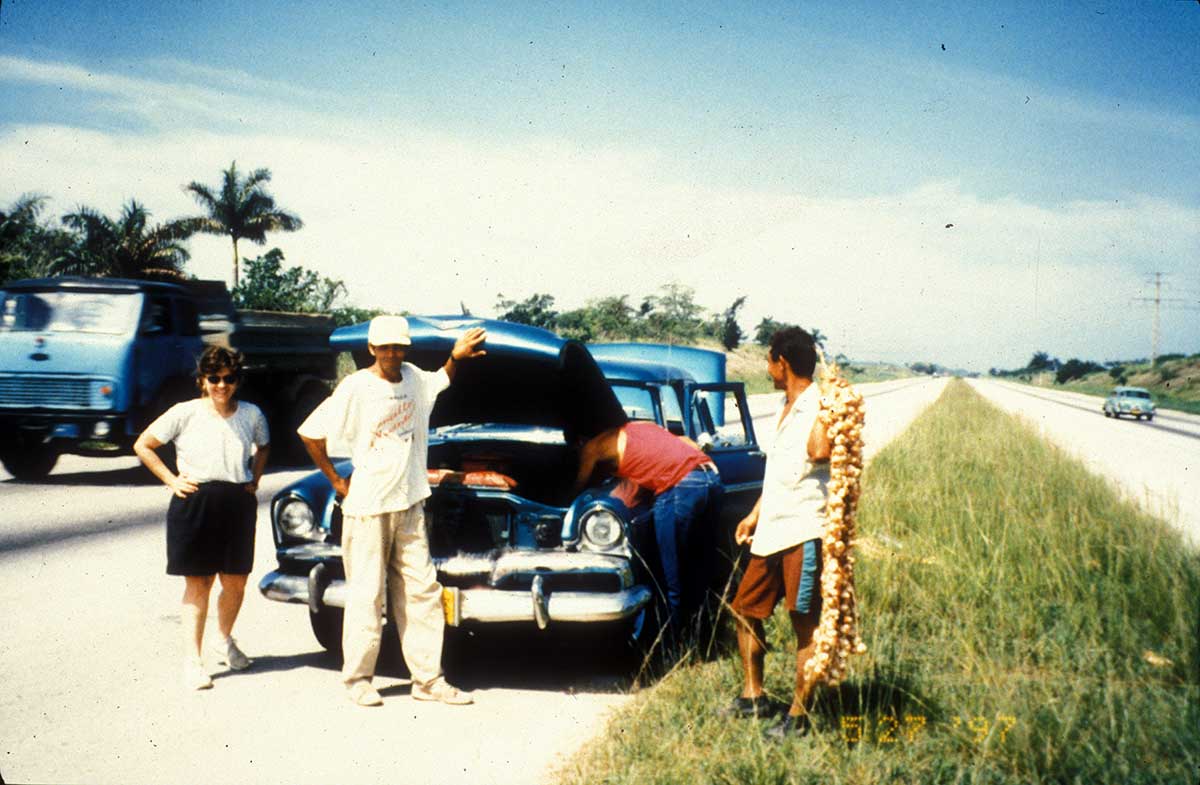Although the package of economic reforms launched in 1992 included the legalization of a non-state-owned, private sector of small businesses, laws limited licensing to a highly limited number of categories. In order to monopolize profits from both tourists and citizens, the state banned the sale of many goods and services by entrepreneurs that its own businesses produced. After fulfilling quotas to hotels and government-owned restaurants, peasants were also only allowed to sell a surplus of vegetables and a highly restricted number of commodities like rice through “free” peasant markets called agro pecuarios. Many opted to risk fines or arrest by approaching motorists along Cuba’s highways with exquisite products like braids of homegrown garlic at what foreigners considered bargain prices. Here, my sister (then visiting medical student) Dr. Lucy Guerra buys garlic for our far-flung relatives for only five bucks a braid! The amount, however, was equivalent to an entire month’s average state wage.
